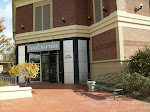 Did you know that 80% of learning depends on vision? Make sure your child does not have a hidden vision disorder that may contribute to poor learning in school. They may not even know they have a problem because they think everyone else sees the blurriness that they see!
Did you know that 80% of learning depends on vision? Make sure your child does not have a hidden vision disorder that may contribute to poor learning in school. They may not even know they have a problem because they think everyone else sees the blurriness that they see!The American Public Health Association recommends eye exams at the ages of 6 months, 2 years, and 4 years. After age 5, they recommend exams at least every 1-2 years, depending on the needs of the individual.
Common vision disorders are:
Nearsightedness (Myopia): Objects at near are in focus, but objects at a distance are blurry.
Farsightedness (Hyperopia): Objects far away may be in focus, but objects up close may be blurry or require additional work in order to keep clear. Sometimes people with high amounts of farsightedness have blurry vision even at a distance.
Astigmatism: Objects such as letters are blurry, distorted, or may seem double. This may be noticeable both at distance and near.
Rare, but more serious conditions include:
Lazy eye (Amblyopia): Objects are out of focus usually only in one eye due to poor development of the visual system or a problem with the visual pathway. This may or may not be associated with an eye turn (strabismus).
Convergence insufficiency: The eyes have difficulty turning inwards while focusing to read. This may cause double vision or a decreased ability to concentrate while reading.
What to check for in children or adults:
- Squinting
- Holding a book very close to the eyes
- Frequent eye rubbing
- Closing one eye
- Headaches
- Blurry or double vision
- Tilting the head
- Short attention span
- Avoiding near work
A thorough exam is necessary to determine what treatments could help. Some conditions are simply treated with glasses, whereas other cases may require vision therapy or specialized treatment plans. The gift of clear vision enables a person to perform to their highest potential both at school and socially. During the critical period of development and as a child or teenager grows, it is even more important that they have regular eye examinations to make sure they are performing their best!
If you know of a child or teenager who is struggling in school or exhibiting any of the above symptoms, an eye exam may help. Appointments can be made at 272-0848, or online at www.RichmondOptometry.com. Check yearly, see clearly!



If you know of a child or teenager who is struggling in school or exhibiting any of the above symptoms, an eye examination can help a lot only from experts.
ReplyDelete